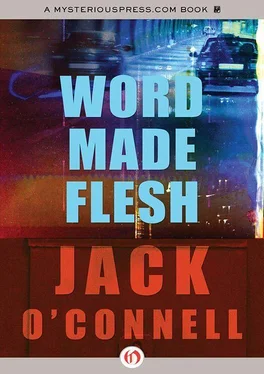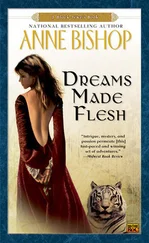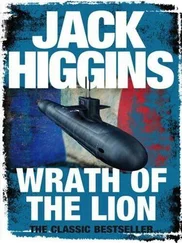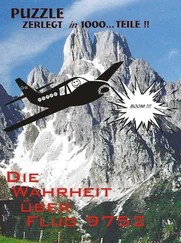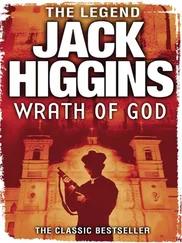“In the—”
But before Lacazze can finish the sentence, Gilrein pulls his piece and fires twice. The first bullet takes the Inspector in the groin. The second goes into and through the throat, knocks Lacazze off the interrogation stool and onto the floor, rolled on his side.
Gilrein waits for the rush of panic and adrenaline but it doesn’t come. He stares at Lacazze, waits for the Inspector to cry out or move. But everything remains still. Completely motionless and almost silent but for the fading echo of the gunshots.
This is the final criticism.
And Gilrein’s response is to exit the precinct house. To exit this city as soon as he can. To leave the putrefying body in the chamber. As a sign. A language that is as close to pure as he can possibly imagine.
Gilrein parks on the fire road at the rear border of the Brockden Estate. He reloads the Colt, gets out of the Checker, walks around the taxi and opens the trunk. In the moonlight he looks in at this vault of grimy remnants that testifies to his father’s life: the mismatched tools, the burlap sack filled with oil rags and dozens of lengths of rope, the khaki duffel still loaded with an emergency change of clothes, and the wooden crate, glossy pine, studded with knotholes and packed with brittle, worn-out paperbacks. They are all western novels, brief adventures in the bloody lives of moral cowboys. Stories of frontiersmen who dispensed a perfect and lasting brand of justice.
Shoving the crate to the side, he grabs the paper sack that contains Alicia’s book. There is a density to the bag, a sense of compressed weight that tells you it holds more than someone’s lunch. He unrolls the top of the bag but does not look inside. Instead, he eases his hand in, slowly, as if he were blindly reaching for a cobra. And he touches the cover of the book, strokes it once, feels the buttery coolness of the binding and recoils immediately. He withdraws his hand and closes the bag, tucks it under his arm and eases the trunk back into locking.
He heads for the orchard, cutting through to the rear of the main house, moving in a moderate jog, looking through the line of dead trees, trying to see if there are any lights on inside.
He doesn’t have a plan so much as a schedule of movements. A plan implies a progression toward completion and resolution. Gilrein thinks that’s just too much to hope for. He’ll settle for distance and time to sort through the confusion of the past few days.
He needs to make sure the farm is secure. He needs to leave a short note for Frankie and Anna. Something about moving his life forward. Putting the past away. Some kind of comforting lie that will allow them to forget about a bothersome friend. The idea right now is to simply gain some space. To evacuate the city, leave it to Kroger and Oster, to their creatures and their unique methods for discerning information and disposing of witnesses, techniques that involve blowtorches and pharmaceuticals, customized screwdrivers and tall buildings, steroid-fed guard dogs and all the horrible secrets of human anatomy. Procedures refined by years of studious experimentation, cold and precise observation of the limitless ways the fear response can be prodded, manipulated, turned against a weaker and ultimately help less victim.
Given the needed abilities — the power, the money, the political sanction, the access to large tracts of private burial ground— Gilrein thinks that what he’d most like to do with the rest of his small life, from tonight forward, from this moment, walking through this barren orchard, is to spend his days methodically eliminating individuals like Kroger and Oster from the planet. To eradicate their existence. To wipe out not just their careers of terror and control, not only their physical presence, but to exterminate any sign that they were ever here, to grind away even the most minute trace of their being from the collective memory of Quinsigamond.
Isn’t this both the best and the worst you can do? Somehow erasing all evidence of a person’s existence is so much more heinous than simply executing her, involving, in some not fully explainable way, a darker and more hideous human impulse. Who could hate this much, at this level of energy and expense, with this breadth of control, wanting to author not just history but reality itself, wanting to make over the universe in the design of one’s own unique and egomaniacal imagining?
He’s at least intelligent enough to know that this would transform him into the kind of monster that even the most ruthless of the neighborhood mayors only dream of being. But how large a sacrifice would that be, becoming the killer angel of all things wicked and cruel? Maybe in the landscape that this city and its people have arrived at, there’s a need for exactly this kind of definitive monster. A beast not just of destruction, but of obliteration. It’s not a new argument. He’s had it before with Ceil and maybe he played devil’s advocate just a second too long, even after she’d spoken the forced cliché that should have changed the course of their discussion.
You ’d be turning into the thing you despise most.
You would become them.
It isn’t completely true and Gilrein had said so at the time. Ceil countered that it was true enough to be the only point that mattered at the end. But Gilrein couldn’t stop himself from arguing that there is a distinct difference of motivation. Kroger and Oster kill for money and power and ideas and the rush of sadism that comes from slaughtering the weak and the different and the innocent. But the monster who went after the killers was acting on another impulse, was responding from a sense of retribution and righteousness, of cold, Old Testament justice. The monster was trying to end the slaughter, not perpetuate it.
But the problem with monsters , Ceil had said, in a voice that still, in memory, sounds both disappointed and resigned, is that they always come to love the process and forget the reasons for their actions.
He comes to the clearing at the end of the orchard and looks up at the farmhouse. And again he calls up his dead wife’s voice. Ceil had once said that the best place to hide a book, any book, would be among other books. Gilrein can no longer remember the context of the discussion in which this was spoken. He can’t even think of why they would have been worrying the question in the first place. But his instinct says that Ceil was right and immediately his plan is to jam Alicia’s story on some shelf of Brockden’s library, then get on a highway before Kroger and Oster can make their moves. Because he knows that he just doesn’t have the abilities he would need to become the eradicating monster. That he’ll never have those abilities and that he should be thankful for that deficiency.
He enters the house and stands in the kitchen trying to calm himself, trying not to telescope, not to think beyond the next few actions: plant the book, grab a few belongings, and drive away. Everything else can be sorted out later. He walks under an archway and into the first-floor library, heads for the stairwell in the center of the room, feels around until he grabs a banister and starts up the spiral. He has no idea why he wants to hide the book up in the chapel.
When he gets to the top, he heads for the stacks opposite the stairwell. He lifts his free arm, lets his hand run along the spines that rest on a shelf set at eye level. At some point he simply stops and forces two volumes apart, creates a tight space, a gap in the line of leather bricks. Then he begins to insert Alicia’s story into the gap.
It’s a tight squeeze and it gives him a vague but uneasy feeling. And that’s when the lights go on and he turns to see August Kroger. Kroger is standing at the mouth of the aisle. And Wylie Brown is gathered in his arms, tape across her mouth and around her wrists and the huge, glinting blade of a buck knife pressed against her throat.
Читать дальше
